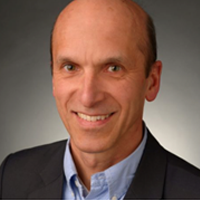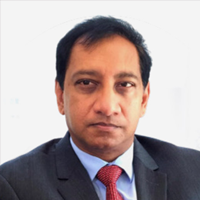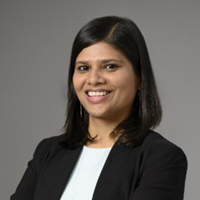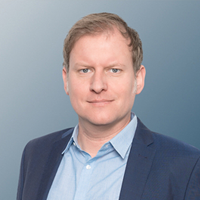This session will focus on how large environmental funds have sought to define and capture sustainability through evaluation practice and through institutional standards and policies. This panel of speakers brings a breadth and depth of experience from operational and strategic perspectives to highlight current best practices and innovations in measuring sustainability and the challenges…
Moderator(s)

30+ years of experience in international and national environmental policy and law, with emphasis on climate change, biodiversity, waste management, development, and finance. Since 2021, he is Principal at 4S Sustainable Solutions, a consultancy, and pro bono President of the LRF Foundation and climate finance Ambassador for Transparency International. From 2010-2020, he served as Head of International Climate and Biodiversity Finance at the Swiss Federal Office for the environment. Main activities comprised i.a.: Swiss delegation to several UNFCCC and CBD COPs; member OECD and G20 working groups on climate finance; GEF Council member representing the constituency of Azerbaijan, the Central Asian countries and Switzerland; GCF Board Member (including as Chair of the Ethics and Audit Committee and Co-Chair of the Private Sector Advisory Group); Co-Chair of the UNFCCC Standing Committee on Finance; Bureau Member of the CBD. Previous functions: Senior Environment Officer at the World Bank, and lawyer at an NGO. He holds a doctorate degree from University of Basel’s Law School and a degree in spatial planning from the Swiss Federal Institute of Technology Zurich (ETH).
Presenter(s)

Indran A. Naidoo is the Director of the Independent Office of Evaluation at IFAD. He brings vast global experience into the role having served as the Director of the Independent Evaluation (IEO) of the United Nations Development Program (UNDP), where he led the transformation and expansion of the office during his 8 year term. Fundamental transformation milestones included entrenching independence, establishing a budget target through a new evaluation policy, new polices, advancing staff professionalization, diversifying evaluation products, dedicated IEO website, and achieving five-fold expansion of coverage and evaluation efficiency. The National Evaluation Capacity (NEC) series grew under his leadership to become the largest United Nations evaluation capacity building event by country participation, offering training and forums for thought leadership with partners over the period, which saw major co-hosting with government and evaluation partners and networks in South Africa, Brazil, Thailand, Turkey and Egypt. Indran has emphasized the importance of evaluation for good governance, transparency, accountability and learning, and has been active in evaluation networks of the United Nations, as a UNEG Vice-Chair, and former Board member of the International Development Evaluation Association (IDEAS), and South African Monitoring and Evaluation Association (SAMEA). He services as academic advisor and reviewer for evaluation courses and journals, and has published extensively.

Mike Spilsbury is the Director of the Evaluation Office of the UN Environment Programme and has more than 25 years professional evaluation experience in international organizations. He joined UN Environment in 2005 as a GEF Evaluation Officer and has performed various roles in the Evaluation Office, serving as its head since 2013. He is active in the United Nations Evaluation Group as is Chair of its Peer Review Working Group. He has completed reviews of the evaluation functions of UNICEF and UNODC and the Independent Evaluation Office of the GEF.Prior to joining UN Environment, he worked as an international research scientist for the Center for International Forestry Research based in Bogor, Indonesia (1995-2005). He joined CIFOR shortly after its creation was responsible for impact assessment, evaluation of research and strategic planning. He has an academic background in forest management and forest ecology. He holds both Masters and Doctoral degrees from Oxford University and Bachelor of Science from York University, UK. He has authored more than 40 publications.

Neha leads the Evaluation and Learning (E&L) Initiative of the Climate Investment Funds (CIF). The E&L Initiative is at the forefront of making CIF's learning laboratory mandate a reality through learning that is evidence-based, timely, and relevant. Neha has over fifteen years of experience in climate, environment, and economic and social development, with deep expertise on evaluation methods, results measurements, and learning. In the past, Neha worked at the Independent Evaluation Group of the World Bank on monitoring and evaluation capacity building. She has also worked on evaluative research and program design with organizations, including the Abdul Latif Jameel Poverty Action Lab and India Infrastructure Publishing. Neha holds a Master’s degree in Public Administration from the Harvard Kennedy School and a second Master’s degree in Economics from Jawaharlal Nehru University.

Evaluation-Expert and Political Scientist, PhD at London School of Economics and Political Science (LSE); Evaluation expert with more than 20 years experience in design and implementation of evaluations in the field of development cooperation; Sven Harten has lived and worked for 15 years in countries of the Global South, where he was mainly active as an evaluator and project manager, with M&E missions in more than 50 countries; Full-time employment as an employee at the World Bank, the European Commission, among others, as well as an independent consultant.




